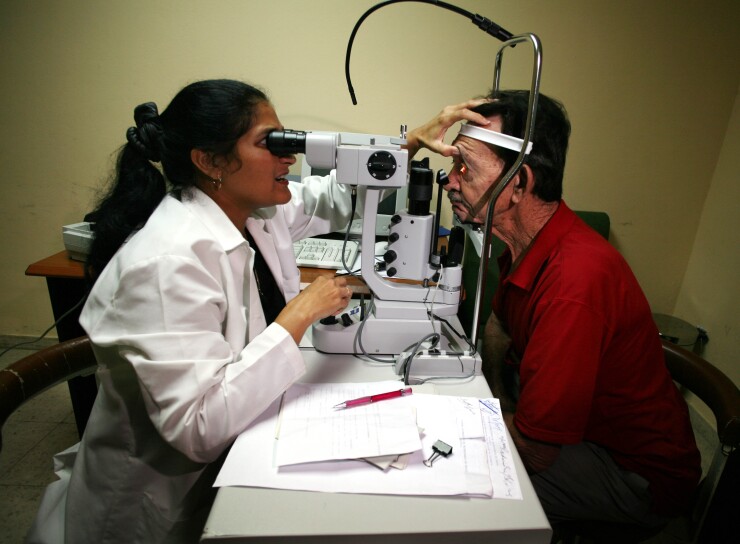Vision enhancement platform eSight has launched a program that allows employees who are visually impaired to become productive in a non-touch, socially responsible way to address needs during the coronavirus crisis.
“It is extremely difficult for low vision employees to be effective in a remote setting without the appropriate technology they are used to in their office setting,” says Brian McCollum, chief commercial officer of eSight.
Employees with vision problems are typically provided with closed circuit television, large monitors, special keyboards and magnification software that the employer’s IT department can set up within the office. However, it can become cost prohibitive or logistically challenging for employers to set up these tools for a remote workforce.
“We currently reach all eSight users and potential users via a telehealth process. We have the ability to train, coach and troubleshoot remotely that not only supports the low vision employee but will support the employer’s IT staff as it deploys this technology,” McCollum says. “We are set up to assume 100% of the workload to get each employee up and running and to make sure they stay productive during this pandemic.”
The employer provided benefit offers employees an electronic vision device that brings all of an organization’s remotely accessible technology – including native applications – into the employee’s device screen that they can see and control.
“Inclusion programs for the low vision community are critical, though these programs are being challenged during these unprecedented times and the impact of COVID-19,” say Robert Vaters, CEO of eSight.
See Also:
Over 3.4 million (3%) Americans aged 40 years and older are either legally blind, or are visually impaired, according to data collected by the Centers for Disease Control and Prevention. Blindness or vision problems has been discovered to be among the top 10 disabilities among adults aged 18 years and older. Vision loss can have serious consequences for the individuals dealing with them. About 91% of employers offered vision benefits in 2019, according to data from the Society for Human Resource Management.
Reduced vision among mature adults can result in social isolation, family stress, and an increased tendency to experience other health conditions or die prematurely, the CDC says.
“We are in a situation where expensive, assistive technologies commonly used at offices are not available at home. While companies are trying to be inclusive, those options can be limited. Often organizations have workspaces with several assistive technologies that can be very costly to the organizations,” McCollum says. “By working with businesses directly, we can provide a solution that better enables their employees to work from home and open the talent pool to more people of different abilities and ages.”






